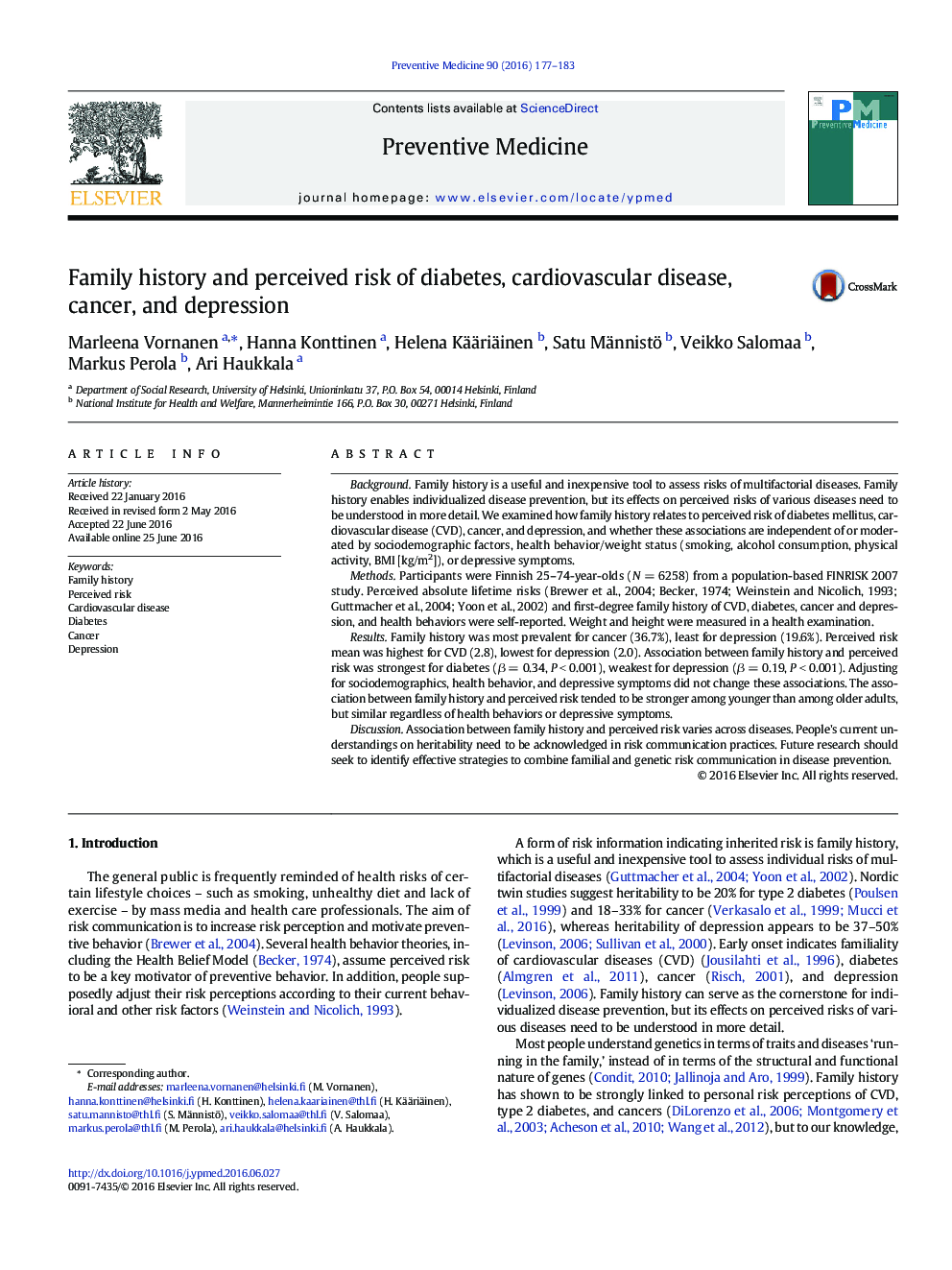| کد مقاله | کد نشریه | سال انتشار | مقاله انگلیسی | نسخه تمام متن |
|---|---|---|---|---|
| 6046056 | 1581624 | 2016 | 7 صفحه PDF | دانلود رایگان |
- Family history was related to perceived risk of CVD, diabetes, cancer, and depression.
- The association was strongest for diabetes, weakest for depression.
- The associations were independent of sociodemographics and health behavior.
- Lay perceptions of heritability need consideration in risk communication practices.
BackgroundFamily history is a useful and inexpensive tool to assess risks of multifactorial diseases. Family history enables individualized disease prevention, but its effects on perceived risks of various diseases need to be understood in more detail. We examined how family history relates to perceived risk of diabetes mellitus, cardiovascular disease (CVD), cancer, and depression, and whether these associations are independent of or moderated by sociodemographic factors, health behavior/weight status (smoking, alcohol consumption, physical activity, BMI [kg/m2]), or depressive symptoms.MethodsParticipants were Finnish 25-74-year-olds (N = 6258) from a population-based FINRISK 2007 study. Perceived absolute lifetime risks (Brewer et al., 2004; Becker, 1974; Weinstein and Nicolich, 1993; Guttmacher et al., 2004; Yoon et al., 2002) and first-degree family history of CVD, diabetes, cancer and depression, and health behaviors were self-reported. Weight and height were measured in a health examination.ResultsFamily history was most prevalent for cancer (36.7%), least for depression (19.6%). Perceived risk mean was highest for CVD (2.8), lowest for depression (2.0). Association between family history and perceived risk was strongest for diabetes (β = 0.34, P < 0.001), weakest for depression (β = 0.19, P < 0.001). Adjusting for sociodemographics, health behavior, and depressive symptoms did not change these associations. The association between family history and perceived risk tended to be stronger among younger than among older adults, but similar regardless of health behaviors or depressive symptoms.DiscussionAssociation between family history and perceived risk varies across diseases. People's current understandings on heritability need to be acknowledged in risk communication practices. Future research should seek to identify effective strategies to combine familial and genetic risk communication in disease prevention.
Journal: Preventive Medicine - Volume 90, September 2016, Pages 177-183
